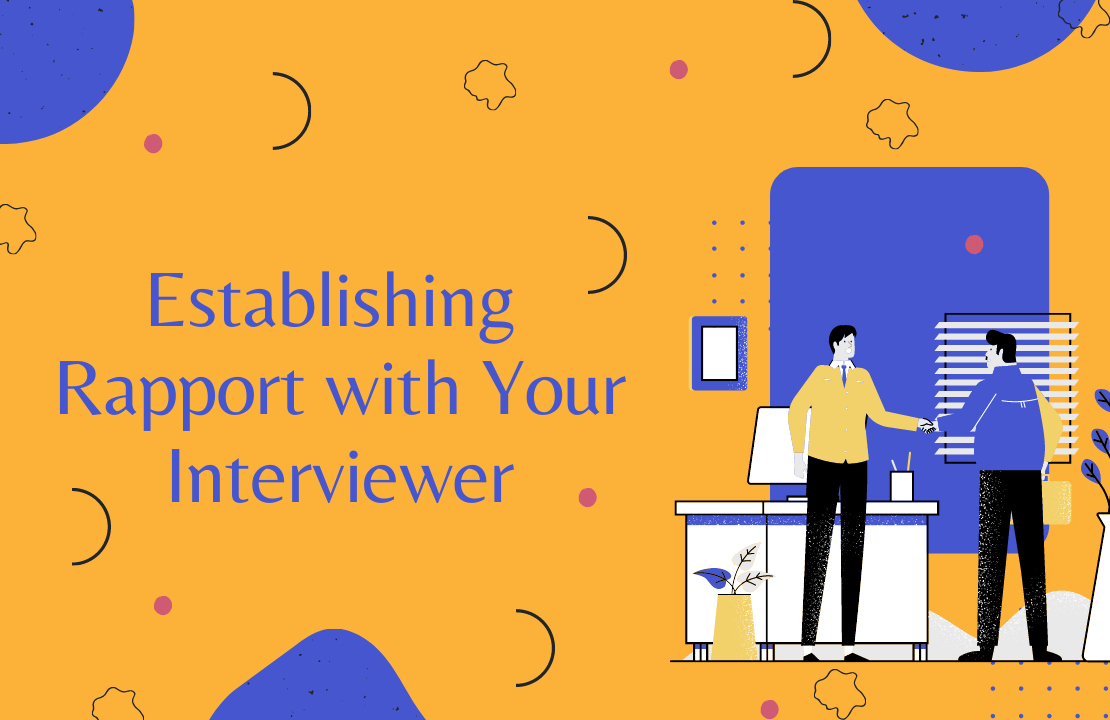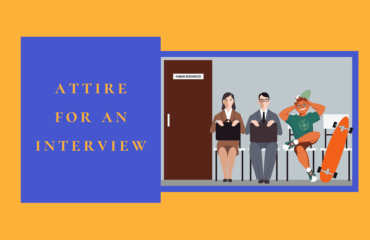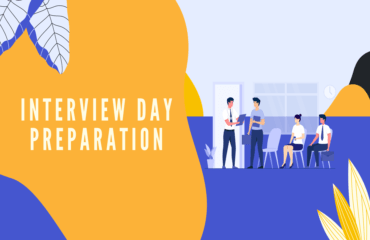Table of Contents
What makes a candidate stand out during a job interview? One quick and safe answer is their job skills and previous experience. However, communication between the interviewee and the interviewer plays an essential role, as well. Moreover, it can affect the hiring team’s judgment and final selection.
So how can you build rapport with the interviewer and make a long-lasting impression? Below, we’ve listed some top practices to make a positive impression during the interview and show your best self. Read them carefully to attract your interviewers to the max.
1. Research the interviewer
Interview preparation is a must for candidates to thrive, so looking up information about your interviewer should be a part of this process. Research their background and previous experiences to understand more about their profile. It’s important to have as much info as possible to be able to connect with them in a meaningful way and communicate efficiently.
However, if you’re searching for information on LinkedIn, keep in mind that you shouldn’t overdo it. If the assessor starts to feel that you’re ‘stalking’ them, they may feel intruded which can turn into a negative for you. So stick to the relevant, professional details and avoid diving into personal matters.
2. Adopt a positive attitude
So how can you sustain the positive vibes mentioned in the introduction during the interview? First off, show how excited you are about getting an interview for this position and express your curiosity to learn more about the company and the role. In contrast, a lack of enthusiasm can signal to the interviewing team that you’re indifferent, bringing negative results.
Also, keep in mind the importance of body language as a means of communication. Here are some useful tips for you:
- Give a firm handshake to the interviewer upon your entrance and smile.
- Sit upright and make eye contact to show that all your attention is on them and what unfolds in the moment.
3. Sharpen your storytelling skills
Yes, body language is crucial but your words matter, too. To ensure that you communicate relevant and valuable information with them, you can practice your storytelling skills. There are certain models to use, such as AIDA, which stands for Attention, Interest, Desire, and Action. For instance, you can choose it when describing work challenges you’ve overcome.
Plus, it’s important to prepare the answers to some of the most common interview questions in advance. Rehearse them in the mirror or conduct a mock interview with a career professional. Try to shape convincing replies that will intrigue the interviewing team. Remember to give examples when needed and avoid forming vague statements.
4. Invest in small talk
Before and during the interview, find opportunities to engage in the so-called small talk with your interviewer. For example, you can have a brief conversation about your common interests before the assessment starts. If you see that the interviewer is eager and open to chatting, respond kindly to start bonding with them.
Focusing on what connects you with them can nurture a feeling of belonging, creating a more relaxed ground for you during the interview. But if you see that the interviewer is not eager to chit-chat, avoid forcing it from your end. Think of it in the sense of mirroring – as a guest, try to go with the flow of your host to gain their liking.
5. Listen actively and respond consciously
As you can imagine, effective communication plays a huge part in building rapport with people you interact with. Active listening is also crucial to connect authentically with the interviewer. They understand that you hold them accountable and that you’re respectful of others.
Active listening will also enable you to be more mindful of your responses during your conversation. When the interviewer stops talking, it’s your time to shine. Show them that you’re confident with your answers, with a steady and warm vocal tone.
What else can you practice to help the interviewer gain trust in you? Remember, a job interview is a two-way street. By the end of the day, you’re there to assess a potential future employer and it’s essential to learn as much as possible about the company and the role.
So to convince your interviewers that you’re a well-trusted professional, prepare work-related questions in advance. This way, you show them that you’ve done your homework and don’t leave anything to luck. Pro tip: Embrace an open-minded attitude and avoid crossing the line, as the interviewer may feel uncomfortable.
7. Send a follow-up email
And finally, what can you do when the job interview is over to seal a great impression once and for all? Connect with the interviewer once more by sending them a follow-up email, also known as a thank-you note. Craft and send it within 24 hours after the interview with a clear subject line to draw their attention.
A follow-up email is a great way to express your appreciation and gratitude to the interview team once more. Share some highlights from your conversation to show how mindful you were during the process. The interviewers will acknowledge this gesture and consider it a positive sign of your professionalism.
To sum up…
Building rapport with the interviewer is a great asset for job candidates. No matter how talented and experienced you are, if the hiring team finds it hard to connect with you in a friendly and human way, this will negatively affect your performance. At the end of the day, they’re looking for their new colleague, someone they will share special moments with and it’s important to feel comfortable with them.
However, this doesn’t mean that you should pretend to be someone you are not. Just make sure to bring the best version of yourself. Enjoy the process and the rest will go with the flow. On a final note, if you worry about your performance, you can always contact a career coach and practice to thrive.





